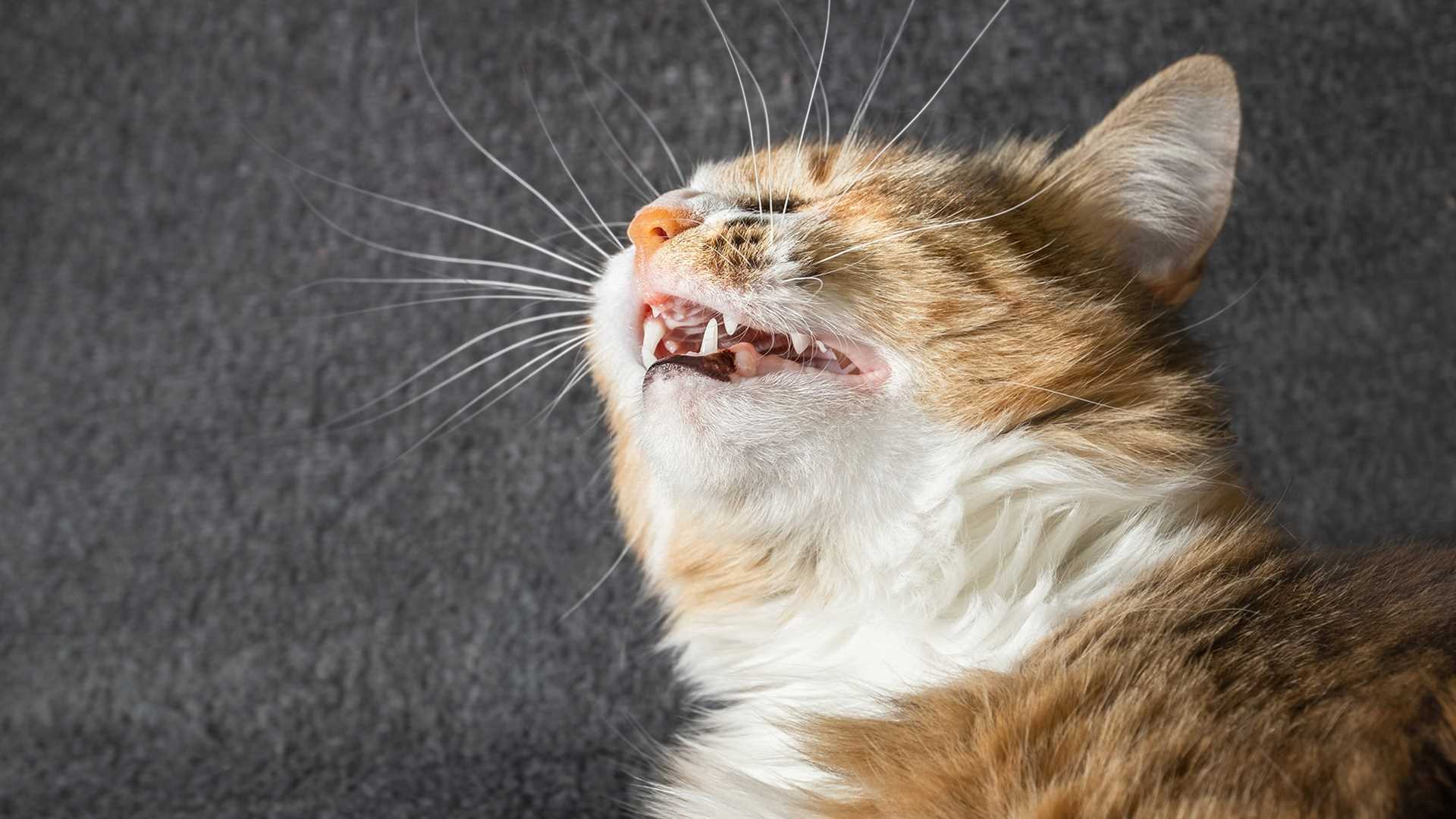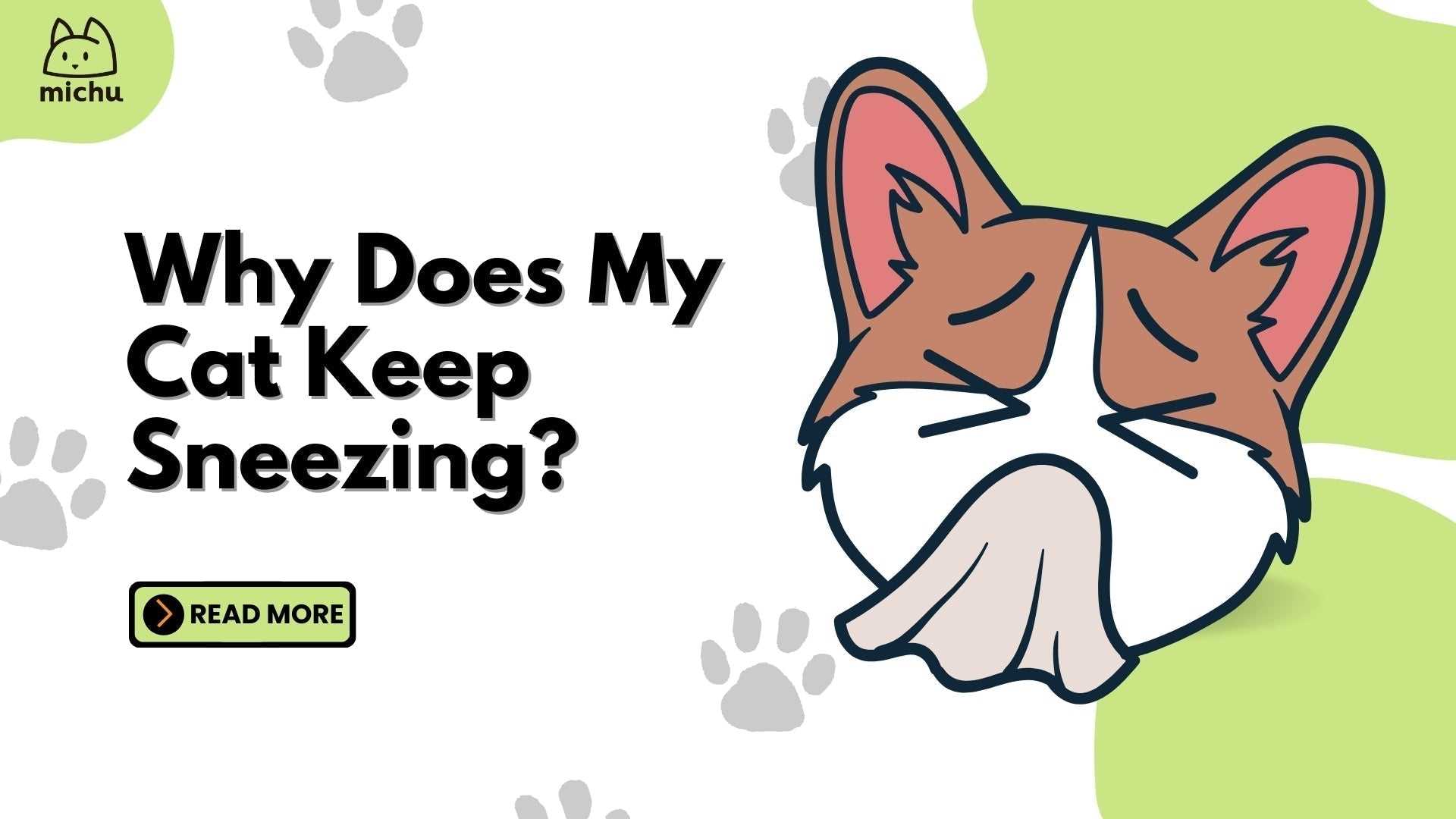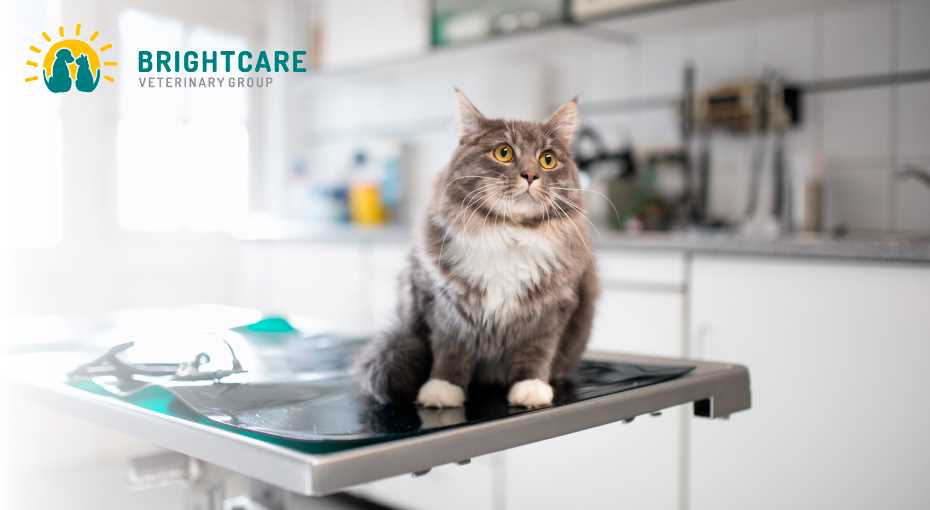



It’s not just a random occurrence; frequent nasal expulsions can signal various underlying issues. If you notice this behavior, consider scheduling a vet visit to rule out allergies, infections, or other health concerns. Cats can be sensitive to environmental factors such as dust, pollen, or strong odors, which may trigger these reactions.
In addition to allergens, respiratory infections are common culprits that can lead to persistent sneezing. If your furry friend displays additional symptoms like nasal discharge, lethargy, or a change in appetite, it’s time to take action. Early diagnosis can make a significant difference in treatment and recovery.
Another factor to consider is dental health. Believe it or not, issues with teeth can sometimes manifest as respiratory symptoms. An examination by a veterinarian can determine if there’s any connection. Keeping an eye on overall health and behavior will help you identify when it’s time to seek professional advice.
Why I Have Frequent Sneezing Fits

Allergies are one of the main reasons for my frequent sneezing. Dust, pollen, or even certain chemicals in the air can trigger a response in my sensitive nose. Keeping the living space clean and minimizing exposure to allergens can help reduce these episodes.
Infections and Illnesses

Upper respiratory infections are common culprits for sneezing in felines. If I’m feeling under the weather, you might notice me sneezing more often. A visit to the vet is essential for proper diagnosis and treatment if other symptoms, like a runny nose or fever, appear.
Environmental Factors

Changes in temperature or humidity can also affect my nose. If it gets too dry inside, I might start sneezing. Using a humidifier can create a more comfortable atmosphere, helping me breathe easier.
Monitoring my health and environment closely is key. If the sneezing persists or worsens, consulting a vet ensures I stay healthy and happy.
Common Allergens That Trigger Sneezing in Felines
Dust mites are a frequent culprit behind those annoying nasal reactions. These tiny creatures thrive in carpets and upholstery, making homes their playground. Regular cleaning and vacuuming help keep them at bay.
Pollen from trees, grasses, and weeds can also set off an allergic response. During certain seasons, outdoor exposure increases the likelihood of inhaling these irritants. Keeping windows closed during high pollen counts can minimize contact.
Mold spores, especially in damp areas, can provoke similar reactions. Ensuring proper ventilation and addressing leaks can prevent mold growth, reducing exposure to this allergen.
Strong odors from cleaning products or air fresheners may also trigger sensitivities. Opt for natural or unscented alternatives to create a more comfortable environment.
Food allergies, while less common, can lead to respiratory issues. If sneezing coincides with diet changes, consult a vet for guidance on identifying potential allergens in meals.
Lastly, cigarette smoke poses a significant risk. Secondhand smoke can irritate delicate respiratory tissues. Keeping living spaces smoke-free benefits overall health.
Identifying Signs of Respiratory Infections in Felines
Pay attention to these specific indicators of respiratory infections:
- Persistent coughing or gagging.
- Excessive nasal discharge, which may be clear or colored.
- Difficulty breathing, indicated by wheezing sounds.
- Changes in appetite, such as reduced interest in food.
- Increased lethargy or lack of energy.
- Fever, which can be detected by feeling warm to the touch.
- Behavioral changes, including hiding or avoiding interaction.
Monitoring Symptoms
Regularly observe the frequency and severity of signs. If symptoms worsen or persist for more than a couple of days, consult a veterinarian. Tracking any additional symptoms, like vomiting or diarrhea, can also aid in diagnosis.
Immediate Action
If experiencing severe breathing difficulties or significant lethargy, seek emergency veterinary care. Quick intervention can significantly improve outcomes.
When to Consult a Veterinarian About Your Feline’s Sneezing
If persistent nasal discharge accompanies the frequent expulsion of air from the nose, it’s wise to seek veterinary advice. Signs of distress, such as difficulty breathing or excessive lethargy, warrant immediate attention.
Should the sneezing persist for more than a few days or become more frequent, a professional examination is essential. If your furry friend exhibits appetite changes or any unusual behavior, a consultation is recommended.
Allergic reactions can escalate quickly; if you notice swelling or skin irritations, don’t hesitate to reach out to your vet. In cases where sneezing is linked to a potential infection, timely intervention can prevent complications.
For those curious about dietary questions, such as can cats eat sage, it’s always best to verify with your veterinarian to ensure safety.
It’s not just a random occurrence; frequent nasal expulsions can signal various underlying issues. If you notice this behavior, consider scheduling a vet visit to rule out allergies, infections, or other health concerns. Cats can be sensitive to environmental factors such as dust, pollen, or strong odors, which may trigger these reactions.
In addition to allergens, respiratory infections are common culprits that can lead to persistent sneezing. If your furry friend displays additional symptoms like nasal discharge, lethargy, or a change in appetite, it’s time to take action. Early diagnosis can make a significant difference in treatment and recovery.
Another factor to consider is dental health. Believe it or not, issues with teeth can sometimes manifest as respiratory symptoms. An examination by a veterinarian can determine if there’s any connection. Keeping an eye on overall health and behavior will help you identify when it’s time to seek professional advice.
Why I Have Frequent Sneezing Fits

Allergies are one of the main reasons for my frequent sneezing. Dust, pollen, or even certain chemicals in the air can trigger a response in my sensitive nose. Keeping the living space clean and minimizing exposure to allergens can help reduce these episodes.
Infections and Illnesses

Upper respiratory infections are common culprits for sneezing in felines. If I’m feeling under the weather, you might notice me sneezing more often. A visit to the vet is essential for proper diagnosis and treatment if other symptoms, like a runny nose or fever, appear.
Environmental Factors

Changes in temperature or humidity can also affect my nose. If it gets too dry inside, I might start sneezing. Using a humidifier can create a more comfortable atmosphere, helping me breathe easier.
Monitoring my health and environment closely is key. If the sneezing persists or worsens, consulting a vet ensures I stay healthy and happy.
Common Allergens That Trigger Sneezing in Felines
Dust mites are a frequent culprit behind those annoying nasal reactions. These tiny creatures thrive in carpets and upholstery, making homes their playground. Regular cleaning and vacuuming help keep them at bay.
Pollen from trees, grasses, and weeds can also set off an allergic response. During certain seasons, outdoor exposure increases the likelihood of inhaling these irritants. Keeping windows closed during high pollen counts can minimize contact.
Mold spores, especially in damp areas, can provoke similar reactions. Ensuring proper ventilation and addressing leaks can prevent mold growth, reducing exposure to this allergen.
Strong odors from cleaning products or air fresheners may also trigger sensitivities. Opt for natural or unscented alternatives to create a more comfortable environment.
Food allergies, while less common, can lead to respiratory issues. If sneezing coincides with diet changes, consult a vet for guidance on identifying potential allergens in meals.
Lastly, cigarette smoke poses a significant risk. Secondhand smoke can irritate delicate respiratory tissues. Keeping living spaces smoke-free benefits overall health.
Identifying Signs of Respiratory Infections in Felines
Pay attention to these specific indicators of respiratory infections:
- Persistent coughing or gagging.
- Excessive nasal discharge, which may be clear or colored.
- Difficulty breathing, indicated by wheezing sounds.
- Changes in appetite, such as reduced interest in food.
- Increased lethargy or lack of energy.
- Fever, which can be detected by feeling warm to the touch.
- Behavioral changes, including hiding or avoiding interaction.
Monitoring Symptoms
Regularly observe the frequency and severity of signs. If symptoms worsen or persist for more than a couple of days, consult a veterinarian. Tracking any additional symptoms, like vomiting or diarrhea, can also aid in diagnosis.
Immediate Action
If experiencing severe breathing difficulties or significant lethargy, seek emergency veterinary care. Quick intervention can significantly improve outcomes.
When to Consult a Veterinarian About Your Feline’s Sneezing
If persistent nasal discharge accompanies the frequent expulsion of air from the nose, it’s wise to seek veterinary advice. Signs of distress, such as difficulty breathing or excessive lethargy, warrant immediate attention.
Should the sneezing persist for more than a few days or become more frequent, a professional examination is essential. If your furry friend exhibits appetite changes or any unusual behavior, a consultation is recommended.
Allergic reactions can escalate quickly; if you notice swelling or skin irritations, don’t hesitate to reach out to your vet. In cases where sneezing is linked to a potential infection, timely intervention can prevent complications.
For those curious about dietary questions, such as can cats eat sage, it’s always best to verify with your veterinarian to ensure safety.
It’s not just a random occurrence; frequent nasal expulsions can signal various underlying issues. If you notice this behavior, consider scheduling a vet visit to rule out allergies, infections, or other health concerns. Cats can be sensitive to environmental factors such as dust, pollen, or strong odors, which may trigger these reactions.
In addition to allergens, respiratory infections are common culprits that can lead to persistent sneezing. If your furry friend displays additional symptoms like nasal discharge, lethargy, or a change in appetite, it’s time to take action. Early diagnosis can make a significant difference in treatment and recovery.
Another factor to consider is dental health. Believe it or not, issues with teeth can sometimes manifest as respiratory symptoms. An examination by a veterinarian can determine if there’s any connection. Keeping an eye on overall health and behavior will help you identify when it’s time to seek professional advice.
Why I Have Frequent Sneezing Fits

Allergies are one of the main reasons for my frequent sneezing. Dust, pollen, or even certain chemicals in the air can trigger a response in my sensitive nose. Keeping the living space clean and minimizing exposure to allergens can help reduce these episodes.
Infections and Illnesses

Upper respiratory infections are common culprits for sneezing in felines. If I’m feeling under the weather, you might notice me sneezing more often. A visit to the vet is essential for proper diagnosis and treatment if other symptoms, like a runny nose or fever, appear.
Environmental Factors

Changes in temperature or humidity can also affect my nose. If it gets too dry inside, I might start sneezing. Using a humidifier can create a more comfortable atmosphere, helping me breathe easier.
Monitoring my health and environment closely is key. If the sneezing persists or worsens, consulting a vet ensures I stay healthy and happy.
Common Allergens That Trigger Sneezing in Felines
Dust mites are a frequent culprit behind those annoying nasal reactions. These tiny creatures thrive in carpets and upholstery, making homes their playground. Regular cleaning and vacuuming help keep them at bay.
Pollen from trees, grasses, and weeds can also set off an allergic response. During certain seasons, outdoor exposure increases the likelihood of inhaling these irritants. Keeping windows closed during high pollen counts can minimize contact.
Mold spores, especially in damp areas, can provoke similar reactions. Ensuring proper ventilation and addressing leaks can prevent mold growth, reducing exposure to this allergen.
Strong odors from cleaning products or air fresheners may also trigger sensitivities. Opt for natural or unscented alternatives to create a more comfortable environment.
Food allergies, while less common, can lead to respiratory issues. If sneezing coincides with diet changes, consult a vet for guidance on identifying potential allergens in meals.
Lastly, cigarette smoke poses a significant risk. Secondhand smoke can irritate delicate respiratory tissues. Keeping living spaces smoke-free benefits overall health.
Identifying Signs of Respiratory Infections in Felines
Pay attention to these specific indicators of respiratory infections:
- Persistent coughing or gagging.
- Excessive nasal discharge, which may be clear or colored.
- Difficulty breathing, indicated by wheezing sounds.
- Changes in appetite, such as reduced interest in food.
- Increased lethargy or lack of energy.
- Fever, which can be detected by feeling warm to the touch.
- Behavioral changes, including hiding or avoiding interaction.
Monitoring Symptoms
Regularly observe the frequency and severity of signs. If symptoms worsen or persist for more than a couple of days, consult a veterinarian. Tracking any additional symptoms, like vomiting or diarrhea, can also aid in diagnosis.
Immediate Action
If experiencing severe breathing difficulties or significant lethargy, seek emergency veterinary care. Quick intervention can significantly improve outcomes.
When to Consult a Veterinarian About Your Feline’s Sneezing
If persistent nasal discharge accompanies the frequent expulsion of air from the nose, it’s wise to seek veterinary advice. Signs of distress, such as difficulty breathing or excessive lethargy, warrant immediate attention.
Should the sneezing persist for more than a few days or become more frequent, a professional examination is essential. If your furry friend exhibits appetite changes or any unusual behavior, a consultation is recommended.
Allergic reactions can escalate quickly; if you notice swelling or skin irritations, don’t hesitate to reach out to your vet. In cases where sneezing is linked to a potential infection, timely intervention can prevent complications.
For those curious about dietary questions, such as can cats eat sage, it’s always best to verify with your veterinarian to ensure safety.










